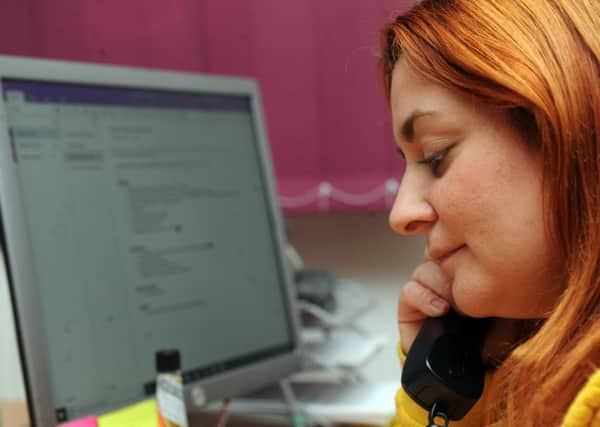SARSVL: '˜Biggest obstacle in my experience is the fear of not being believed, says adviser


As part of the team at Support After Rape and Sexual Violence Leeds (SARSVL), she helps to run the advocacy service offered by the charity.
“My role is to provide emotional and practical support to women who have experienced any form of sexual violence at any point in their lives, who are considering reporting to the police or have done so,” she said.
Advertisement
Hide AdAdvertisement
Hide Ad“It’s not counselling, but it’s trauma-focused emotional support. It’s about helping women understand the impact of trauma.”
She has found post-traumatic stress disorder is very common among survivors of sexual violence.
It could manifest itself in the form of being hypervigilant, finding it difficult to manage emotions, or a lack of trust – something which can hold people back for many years from making a report.
Advertisement
Hide AdAdvertisement
Hide AdAlison said: “The biggest obstacle in my experience is the fear of not being believed. We live in a culture of victim blaming and disbelief.
“There’s been a social shift around child sexual abuse, but there’s still a long way to go.”
While high profile historic child sex abuse cases and scandals have shone a light on institutional failures in responding to reports of that nature, Alison believes there is yet to be a similar shift in how sexual violence against adult women is viewed.
Victim blaming, media coverage, comments on social media, and the way the criminal justice system works can all have an impact.
Advertisement
Hide AdAdvertisement
Hide AdIt is in the face of all this that an independent advisor can play a crucial role in giving women the information they need to make an informed choice on reporting to police.
“I provide information about what happens, what the process is,” she said. “It’s really important as well to manage expectations about the likelihood of a rape getting to court so they really are making an informed choice.”
Where women decide to report, Alison is on hand to liaise with police, guide them through the court process and tell them about their rights.
And the charity’s approach means there is no pressure to take that step.
Advertisement
Hide AdAdvertisement
Hide AdAlison said: “We work to an empowerment model of giving women the information they want and need. It’s completely led by them and that information allows her to make the decision about what she wants. What we don’t want to do is take away more choices for her.”
Visit the SARSVL website for more information on its services: http://supportafterrapeleeds.org.uk/